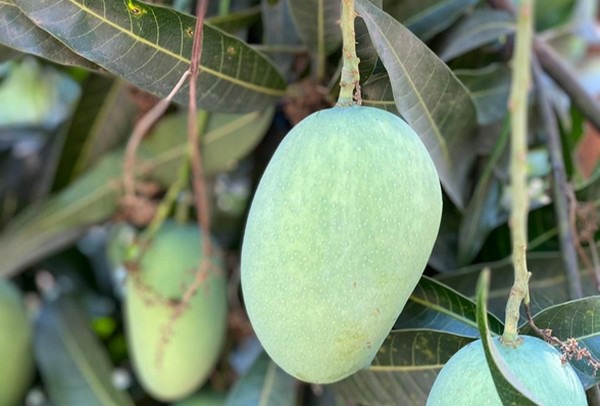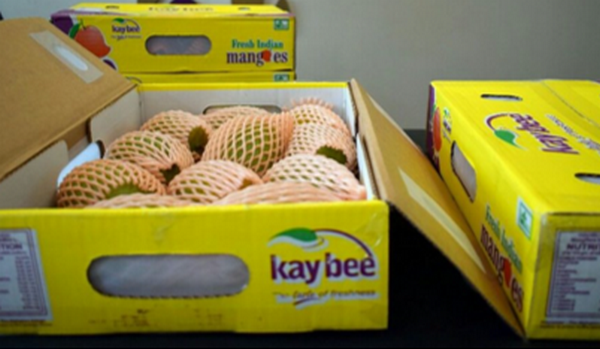Indian mango producers are excited to start exports to the United States after a 2-year break in supply caused by the Covid-19 pandemic. Their mangoes have gone through fruit setting and are growing to maturity with harvesting only a few weeks away. While there is good demand from end consumers in the US with a lot of enquiries from importers, the expensive airfreight rates are worrying producers in India who are hoping they will be lower when they start harvesting in March.

Kaushal Khakhar, CEO of Kay Bee Exports, who export the premium Alphonso mango variety, hope they would be able to come close to previous export volumes. They ship to more than 14 US cities with New York and San Francisco amongst some of the biggest receivers.
“There is a lot of latent demand from end consumers in the US. Since last year we received a lot of enquiries from importers. New York and San Francisco have the biggest concentration of ethnic Indian population. It is very easy to send our mangoes to them because they understand why there is a premium to be paid. We are also targeting retail and a wider US consumer base.”
“Indian mangoes do about 1,400 tons of exports to USA in a 2-months window by air. It is a small volume, as it is a speciality premium mango with high prices. We expect the volume to come back only if airfreight returns to normal. Currently it is double the normal rate. Because of this I am not sure if we will reach the same export levels. However, if flights between the two countries start to normalise, we can expect air-freight rates to start reducing gradually.”
In a previous FreshPlaza article it was noted that US and Indian Governments could not agree on an interim process for inspections during the Covid-19 pandemic, thereby halting exports for this 2-year period. The two governments have in the meantime agreed on a “transfer of oversight” program with a one-year transition period. The transition period will utilise the pre-clearance protocol as in the past. Post this, India will be allowed to ship fruit by having the mangoes irradiated with just the Indian phytosanitary inspection. “So there will be no pre-clearance and there will be a post-arrival inspection in the US. We know Australia ships to the US, but in their summer. We have an empty market in the US when it comes to the speciality mangoes,” Khakhar says.
Irradiation is a quarantine treatment, which according to Khakhar is increasingly being used globally as it is safe for consumers and easy on the fruit as well. USDA has approved three irradiation plants in India – Nashik, Mumbai and Bangalore. These facilities provide Indian producers with a slight competitive advantage over neighbouring Pakistan, who have to irradiate upon arrival in the US, which carries its own risks.

On the production side, Khakhar says growing conditions are ideal with most of their orchards situated on the western Indian sea coast where they achieve good flavours. “Growing conditions are positive, the mangoes are developing and look good overall. We are hoping to have good harvests from March. The fruit has set now. Generally during February and March, the weather is clear. We don’t expect any major changes.”
India is known for its sweeping monsoon rains. “Fortunately for us fruit production is spread over a wide geographical area with non-seasonal rains affecting only a few areas. This allows other areas to continue production and harvesting,” says Khakhar.
For more information:
Kaushal Khakhar
Kay Bee Exports
Tel: +91 2241 57 8900
Email: export@kaybeeexports.com
www.kaybeeexports.com
www.mangofirst.com
